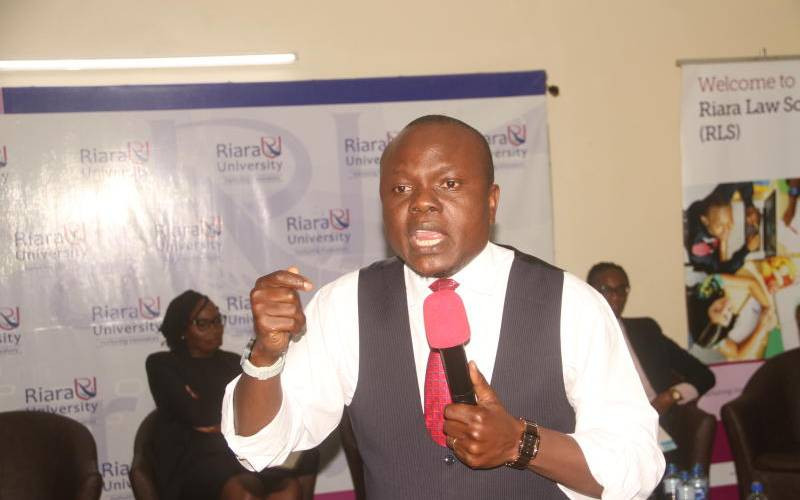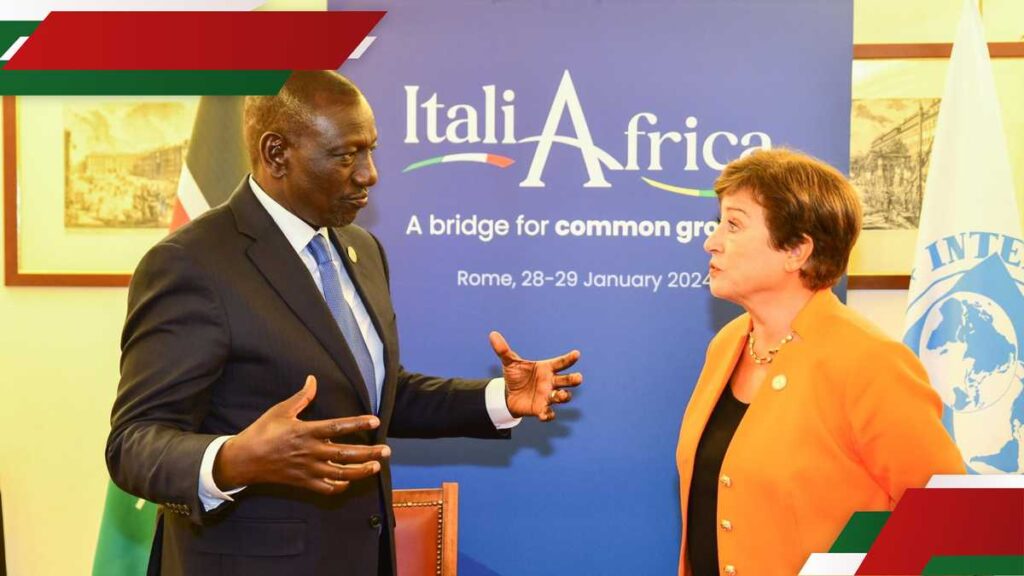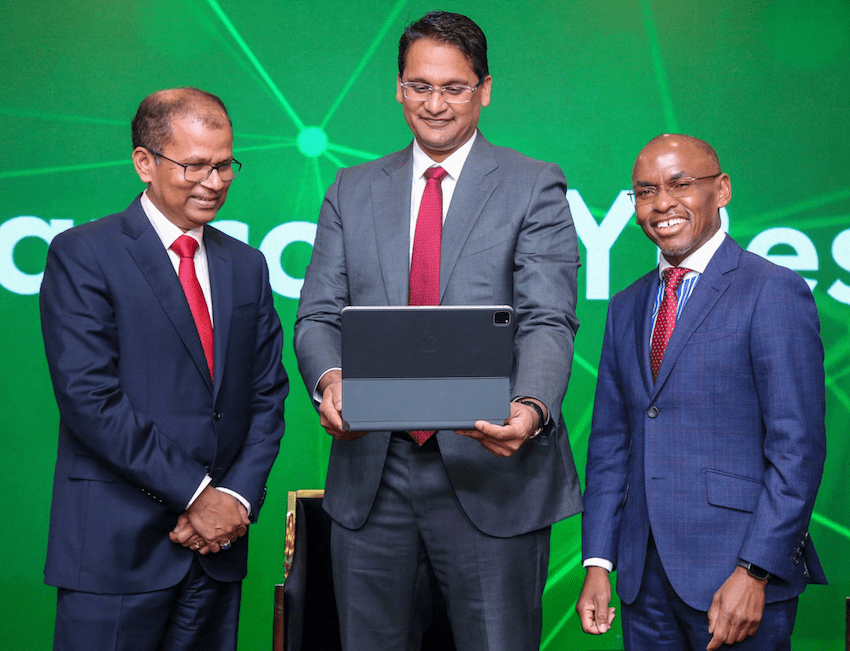After hours of back and forth between lawyers Peter Wanyama and Awadh Mubarak on whether governors and Members of Parliament could sit and talk their way out of the roads maintenance money impasse, the county chiefs finally had their day with a win.
on Thursday morning, Justice Lawrence Mugambi informed Wanyama, who was representing Governors, and Awadh, who was in court for the National Assembly, that he was ready with his judgment but had given their clients a chance to sort the issue out of court for a win-win outcome.
However, Wanyama said most governors agreed that MPs had nothing to offer but illegally deny counties the Sh 10 billion.
On the other, Awadh, who lawyer Peter Kaluma accompanied, claimed the representatives of both parties had met on Wednesday and made some progress. He asked for more time.
The Judge ordered them all to appear in person as the issue was a tower of Barbel. He then made up his mind to read his verdict and MPs lost.
Justice Mugambi said the National Assembly’s decision to unilaterally remove and or fail to provide for the County Governments as beneficiaries of funds of the Road Maintenance Levy Fund (‘RMLF’) was illegal and unconstitutional.
According to him, MPs had devised a scheme to kill devolution through enacting laws that were silent on the roles of the devolved units in maintaining county roads.
According to the judge, Section 47 of the Kenya Roads Act, No. 2 of 2007, as read with the First Schedule of the Kenya Roads Act No. 2 of 2007, is unconstitutional and undermines devolution because it fails to clearly define the counties and which ones are urban or rural.
He said MP’s failure to appropriate funds for the counties’ roads maintenance was also illegal and unconstitutional.
Justice Mugambi said that MPs were acting in a tyrannical manner by exercising sweeping powers that they did not have.
“Unconstitutional decisions by the first respondent cannot be shielded from the Court’s scrutiny under the doctrine of separation of powers. It is unacceptable for the legislative arm of the national government to exercise absolute power that threatens to deprive funding to constitutionally assigned county function of road by appropriating all the revenue that is collected nationally and set aside for this specific purpose to the national government,” said Justice Mugambi.
At the heart of the controversy was a prolonged tussle between county governments and the National Assembly over control of the multi-billion-shilling Roads Maintenance Levy Fund (RMLF).
The dispute was centred on the constitutional interpretation of whose role it is to manage the billions collected from motorists at the fuel pump—a standoff further complicated by an active court case.
Stay informed. Subscribe to our newsletter
The RMLF, collected by the Kenya Roads Board (KRB) at a rate of Sh25 per litre of petrol and diesel, is intended to maintain and rehabilitate the country’s road network. Traditionally, the funds have been allocated to national agencies: the Kenya National Highways Authority (KeNHA), the Kenya Urban Roads Authority (KURA), and the Kenya Rural Roads Authority (KeRRA).
However, following devolution, county governments argue they are responsible for maintaining the majority of roads and should, therefore, have direct control over a significant portion of the fund.
Members of the National Assembly expressed frustration over the freezing of funds, arguing it had stalled essential road maintenance projects in their constituencies.
In the case, Wanyama argued that KeRRA and KURA continue to exist and perform the functions of the county governments.
According to him, the continued disbursement of the RMLF to the road agencies was discriminative as the counties were also expected to repair roads.
He asked the court to force the Cabinet Secretary of Roads and Transport and the Attorney General to take appropriate measures within 12 months to reclassify all roads in Kenya to national trunk roads and county ones.
On the other hand, Awadh argued that the case was premature. He said that the case was meant to pre-empt the County Government Additional Allocations Bill, Senate Bill No. 19 of 2024, which was a violation of the doctrine of ripeness.
Awadh further claimed that governors were inviting the court to usurp the legislative powers set for Parliament. He said that there is a proposed amendment to the law, which was still undergoing legislative processes before the August House.
According to him, the application based on the misguided assumption that Sh 10.5 billion had already been set aside and allocated to County Governments from the Roads Maintenance Levy Fund.

























